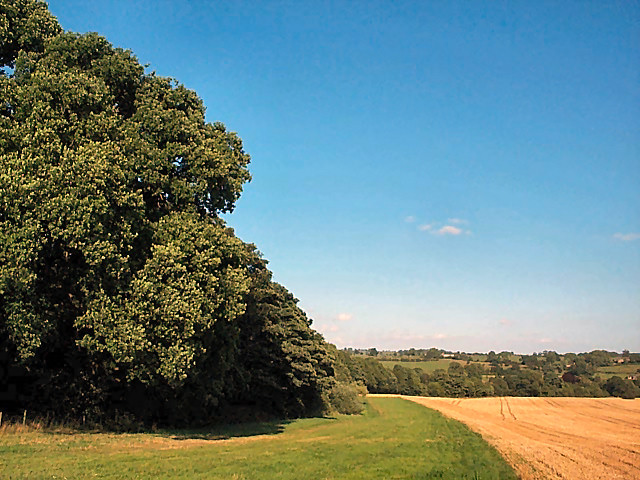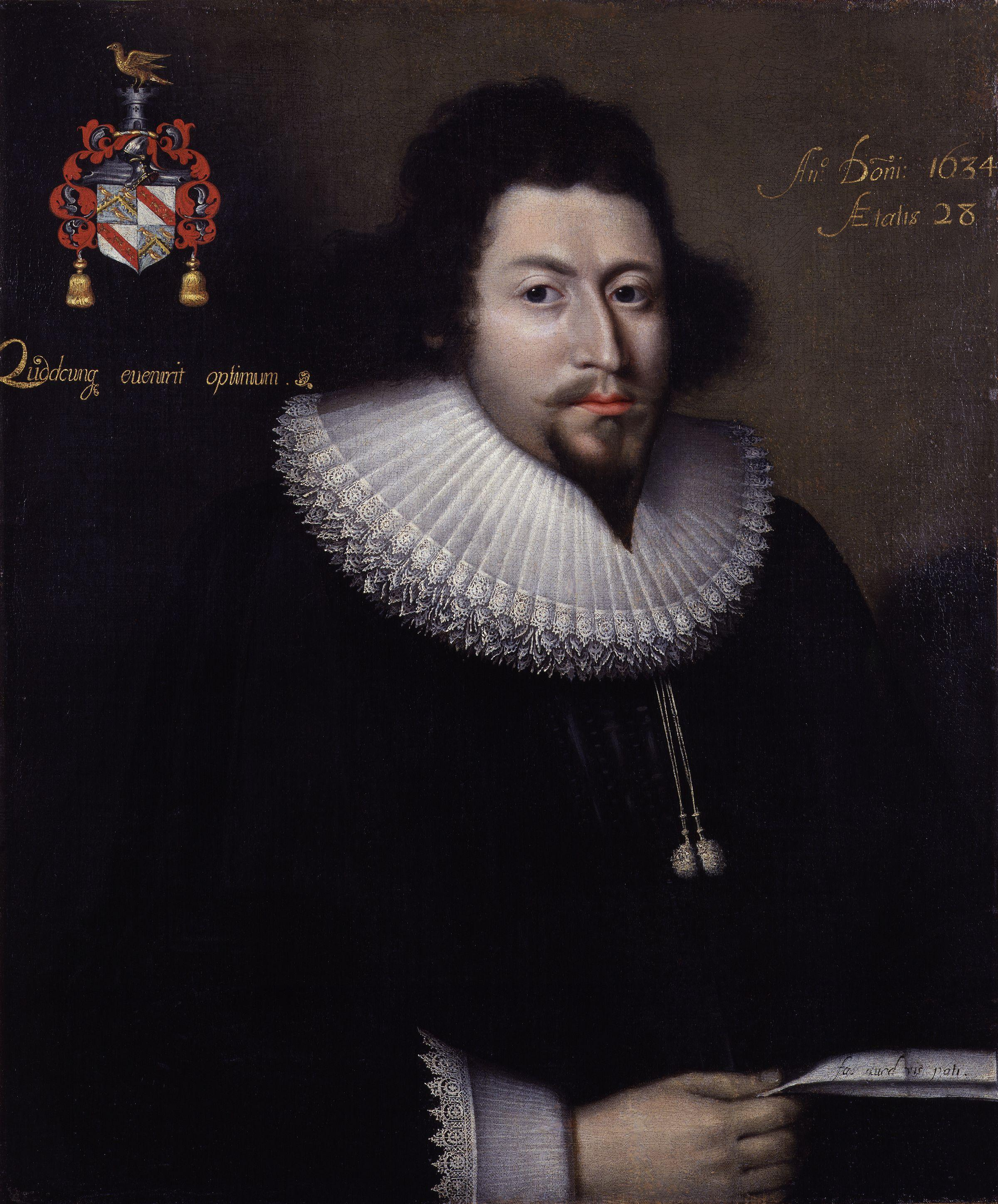|
Robert Harper (conveyancer)
Robert Harper (''c''. 1700 - 1772) was an English conveyancer and drafter of parliamentary bills. Biography He was born the eldest son of Samuel Harper of Farnley, Yorkshire. He was admitted to Lincoln's Inn on 14 March 1717 and was called to the bar on 5 February 1735. He was a regular attender of meetings of the Council of the Bench, being appointed Master of the Walks in 1752, Keeper of the Black Book in 1753, Dean of Chapel in 1755, Treasurer in 1760 and Master of the Library in 1761. Harper was also something of an antiquarian, possessing a manuscript of John Hooker's translation of the ‘Modus tenendi parliamentum’ and of Hooker's ‘The Order and Usage how to keep a Parliament in England’. He subscribed to the 1732 edition of Bulstrode Whitelocke's ''Memorials of English affairs''. These works demonstrate a parliamentary bias in his interests. Harper drafted a considerable number of parliamentary bills. During his most active years, 1732-1762, 458 out of 1,238 Private ... [...More Info...] [...Related Items...] OR: [Wikipedia] [Google] [Baidu] |
Farnley, North Yorkshire
Farnley is a village and civil parish in the Harrogate district of North Yorkshire, England, near Otley, West Yorkshire. The name "Farnley" indicates that the village was first established in an area heavy with ferns. It is mentioned in the 1086 Domesday Book as ''Fernelai'' and ''Fernelie''. To the south of the village lies Farnley Hall, a stately home built by John Carr. The house has a rich history, being associated with names such as Fairfax, Cromwell, and Turner. A selection of Turner's works from the Farnley Hall collection were sold in 1890 for £25,000.''Yorkshire Rivers: The Washburn'', by Tom Bradley (published 1895, reprinted 1988, Old Hall Press.) The primary school in Farnley is occasionally used as a location for filming the soap opera ''Emmerdale ''Emmerdale'' (known as ''Emmerdale Farm'' until 1989) is a British soap opera that is broadcast on ITV1. The show is set in Emmerdale (known as Beckindale until 1994), a fictional village in the Yorkshire ... [...More Info...] [...Related Items...] OR: [Wikipedia] [Google] [Baidu] |
Yorkshire
Yorkshire ( ; abbreviated Yorks), formally known as the County of York, is a Historic counties of England, historic county in northern England and by far the largest in the United Kingdom. Because of its large area in comparison with other English counties, functions have been undertaken over time by its subdivisions, which have also been subject to History of local government in Yorkshire, periodic reform. Throughout these changes, Yorkshire has continued to be recognised as a geographic territory and cultural region. The name is familiar and well understood across the United Kingdom and is in common use in the media and the Yorkshire Regiment, military, and also features in the titles of current areas of civil administration such as North Yorkshire, South Yorkshire, West Yorkshire and the East Riding of Yorkshire. Within the borders of the historic county of Yorkshire are large stretches of countryside, including the Yorkshire Dales, North York Moors and Peak District nationa ... [...More Info...] [...Related Items...] OR: [Wikipedia] [Google] [Baidu] |
Lincoln's Inn
The Honourable Society of Lincoln's Inn is one of the four Inns of Court in London to which barristers of England and Wales belong and where they are called to the Bar. (The other three are Middle Temple, Inner Temple and Gray's Inn.) Lincoln's Inn, along with the three other Inns of Court, is recognised as being one of the world's most prestigious professional bodies of judges and lawyers. Lincoln's Inn is situated in Holborn, in the London Borough of Camden, just on the border with the City of London and the City of Westminster, and across the road from London School of Economics and Political Science, Royal Courts of Justice and King's College London's Maughan Library. The nearest tube station is Holborn tube station or Chancery Lane. Lincoln's Inn is the largest Inn, covering . It is believed to be named after Henry de Lacy, 3rd Earl of Lincoln. History During the 12th and early 13th centuries, the law was taught in the City of London, primarily by the clergy. Then two ... [...More Info...] [...Related Items...] OR: [Wikipedia] [Google] [Baidu] |
Called To The Bar
The call to the bar is a legal term of art in most common law jurisdictions where persons must be qualified to be allowed to argue in court on behalf of another party and are then said to have been "called to the bar" or to have received "call to the bar". "The bar" is now used as a collective noun for barristers, but literally referred to the wooden barrier in old courtrooms, which separated the often crowded public area at the rear from the space near the judges reserved for those having business with the court. Barristers would sit or stand immediately behind it, facing the judge, and could use it as a table for their briefs. Like many other common law terms, the term originated in England in the Middle Ages, and the ''call to the bar'' refers to the summons issued to one found fit to speak at the "bar" of the royal courts. In time, English judges allowed only legally qualified men to address them on the law and later delegated the qualification and admission of barristers t ... [...More Info...] [...Related Items...] OR: [Wikipedia] [Google] [Baidu] |
Antiquarian
An antiquarian or antiquary () is an fan (person), aficionado or student of antiquities or things of the past. More specifically, the term is used for those who study history with particular attention to ancient artifact (archaeology), artifacts, History of archaeology, archaeological and historic Archaeological site, sites, or historic archives and manuscripts. The essence of antiquarianism is a focus on the empirical evidence of the past, and is perhaps best encapsulated in the motto adopted by the 18th-century antiquary Sir Richard Hoare, 2nd Baronet, Sir Richard Colt Hoare, "We speak from facts, not theory." The ''Oxford English Dictionary'' first cites "archaeologist" from 1824; this soon took over as the usual term for one major branch of antiquarian activity. "Archaeology", from 1607 onwards, initially meant what is now seen as "ancient history" generally, with the narrower modern sense first seen in 1837. Today the term "antiquarian" is often used in a pejorative sense ... [...More Info...] [...Related Items...] OR: [Wikipedia] [Google] [Baidu] |
John Hooker (English Constitutionalist)
John Hooker (or "Hoker") ''alias'' John Vowell (c. 1527–1601) of Exeter in Devon, was an English historian, writer, solicitor, antiquary, and civic administrator. From 1555 to his death he was Chamberlain of Exeter. He was twice MP for Exeter in 1570/1 and 1586, and for Athenry in Ireland in 1569 and wrote an influential treatise on parliamentary procedure. He wrote an eye-witness account of the siege of Exeter during the Prayer Book Rebellion in 1549. He spent several years in Ireland as legal adviser to Sir Peter Carew, and following Carew's death in 1575 wrote his biography. He was one of the editors of the second edition of Raphael Holinshed's ''Chronicles'', published in 1587. His last, unpublished and probably uncompleted work was the first topographical description of the county of Devon. He founded a guild of Merchant Adventurers under a charter from Queen Mary. He was the uncle of Richard Hooker, the influential Anglican theologian. Origins Hooker was born at Bou ... [...More Info...] [...Related Items...] OR: [Wikipedia] [Google] [Baidu] |
Bulstrode Whitelocke
Sir Bulstrode Whitelocke (6 August 1605 – 28 July 1675) was an English lawyer, writer, parliamentarian and Lord Keeper of the Great Seal of England. Early life He was the eldest son of Sir James Whitelocke and Elizabeth Bulstrode, and was born on 6 August 1605 at George Croke's house in Fleet Street, London. He was baptized on 19 August 1605 at the nearby church of St Dunstan-in-the-West, where his mother's parents were married in 1571; his notorious uncle Edmund Whitelocke, being one of the godfathers, announced that the child was to be called Bulstrode. The vicar demurred, but Edmund insisted that he bear his mother's name, "Bulstrode or Elizabeth, let them choose which they please". Bulstrode was educated briefly at Eton College, then at Merchant Taylors' School and at St John's College, Oxford, where he matriculated on 8 December 1620. Early career He left Oxford, without a degree, for the Middle Temple, and was called to the bar in 1626; in 1628 he became treasure ... [...More Info...] [...Related Items...] OR: [Wikipedia] [Google] [Baidu] |
British Museum
The British Museum is a public museum dedicated to human history, art and culture located in the Bloomsbury area of London. Its permanent collection of eight million works is among the largest and most comprehensive in existence. It documents the story of human culture from its beginnings to the present.Among the national museums in London, sculpture and decorative and applied art are in the Victoria and Albert Museum; the British Museum houses earlier art, non-Western art, prints and drawings. The National Gallery holds the national collection of Western European art to about 1900, while art of the 20th century on is at Tate Modern. Tate Britain holds British Art from 1500 onwards. Books, manuscripts and many works on paper are in the British Library. There are significant overlaps between the coverage of the various collections. The British Museum was the first public national museum to cover all fields of knowledge. The museum was established in 1753, largely b ... [...More Info...] [...Related Items...] OR: [Wikipedia] [Google] [Baidu] |
1700s Births
Seventeen or 17 may refer to: *17 (number), the natural number following 16 and preceding 18 * one of the years 17 BC, AD 17, 1917, 2017 Literature Magazines * ''Seventeen'' (American magazine), an American magazine * ''Seventeen'' (Japanese magazine), a Japanese magazine Novels * ''Seventeen'' (Tarkington novel), a 1916 novel by Booth Tarkington *''Seventeen'' (''Sebuntiin''), a 1961 novel by Kenzaburō Ōe * ''Seventeen'' (Serafin novel), a 2004 novel by Shan Serafin Stage and screen Film * ''Seventeen'' (1916 film), an American silent comedy film *''Number Seventeen'', a 1932 film directed by Alfred Hitchcock * ''Seventeen'' (1940 film), an American comedy film *''Eric Soya's '17''' (Danish: ''Sytten''), a 1965 Danish comedy film * ''Seventeen'' (1985 film), a documentary film * ''17 Again'' (film), a 2009 film whose working title was ''17'' * ''Seventeen'' (2019 film), a Spanish drama film Television * ''Seventeen'' (TV drama), a 1994 UK dramatic short starring Christi ... [...More Info...] [...Related Items...] OR: [Wikipedia] [Google] [Baidu] |
1772 Deaths
Year 177 ( CLXXVII) was a common year starting on Tuesday (link will display the full calendar) of the Julian calendar. At the time, it was known as the Year of the Consulship of Commodus and Plautius (or, less frequently, year 930 ''Ab urbe condita''). The denomination 177 for this year has been used since the early medieval period, when the Anno Domini calendar era became the prevalent method in Europe for naming years. Events By place Roman Empire * Lucius Aurelius Commodus Caesar (age 15) and Marcus Peducaeus Plautius Quintillus become Roman Consuls. * Commodus is given the title ''Augustus'', and is made co-emperor, with the same status as his father, Marcus Aurelius. * A systematic persecution of Christians begins in Rome; the followers take refuge in the catacombs. * The churches in southern Gaul are destroyed after a crowd accuses the local Christians of practicing cannibalism. * Forty-seven Christians are martyred in Lyon (Saint Blandina and Pothinus, bishop o ... [...More Info...] [...Related Items...] OR: [Wikipedia] [Google] [Baidu] |






